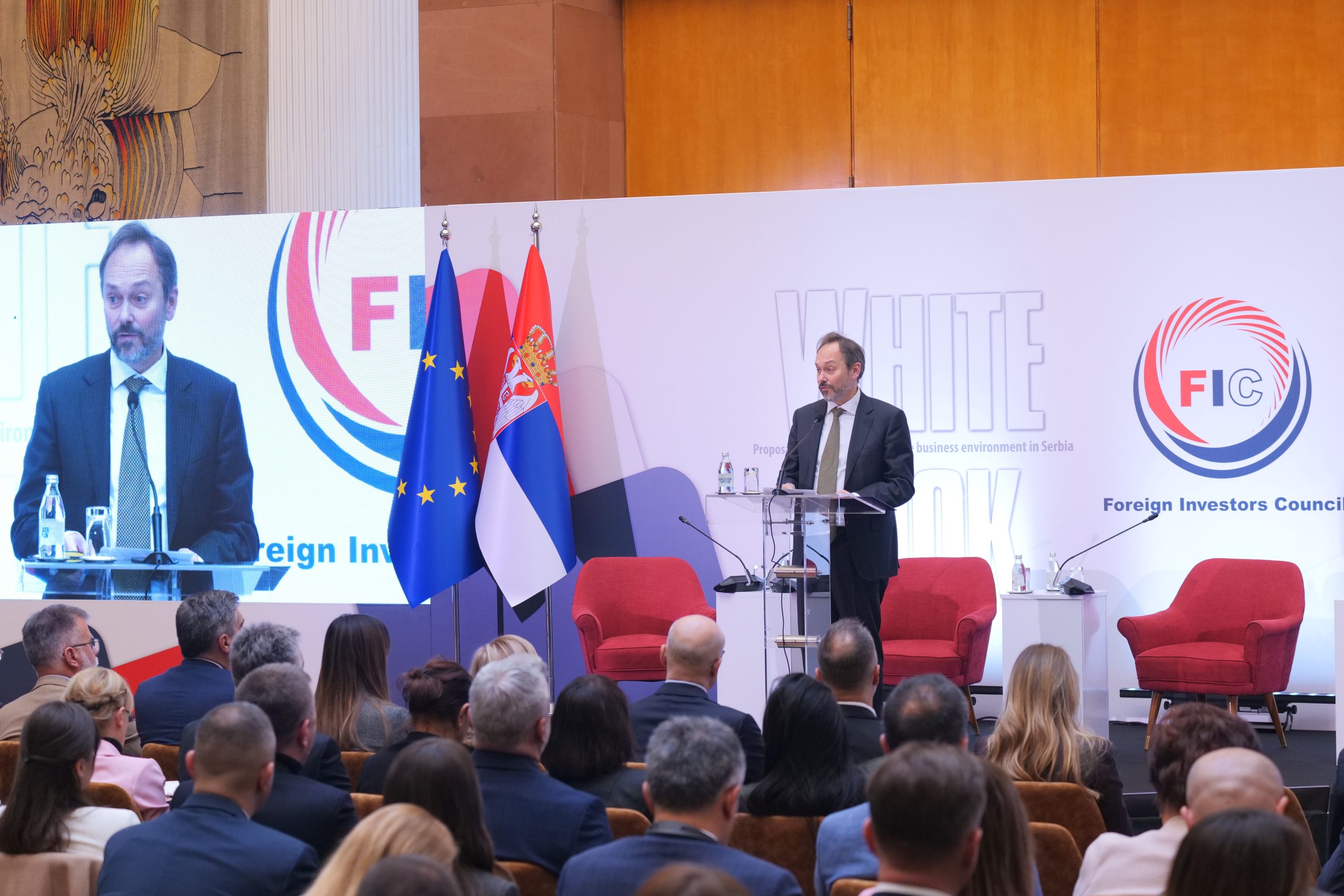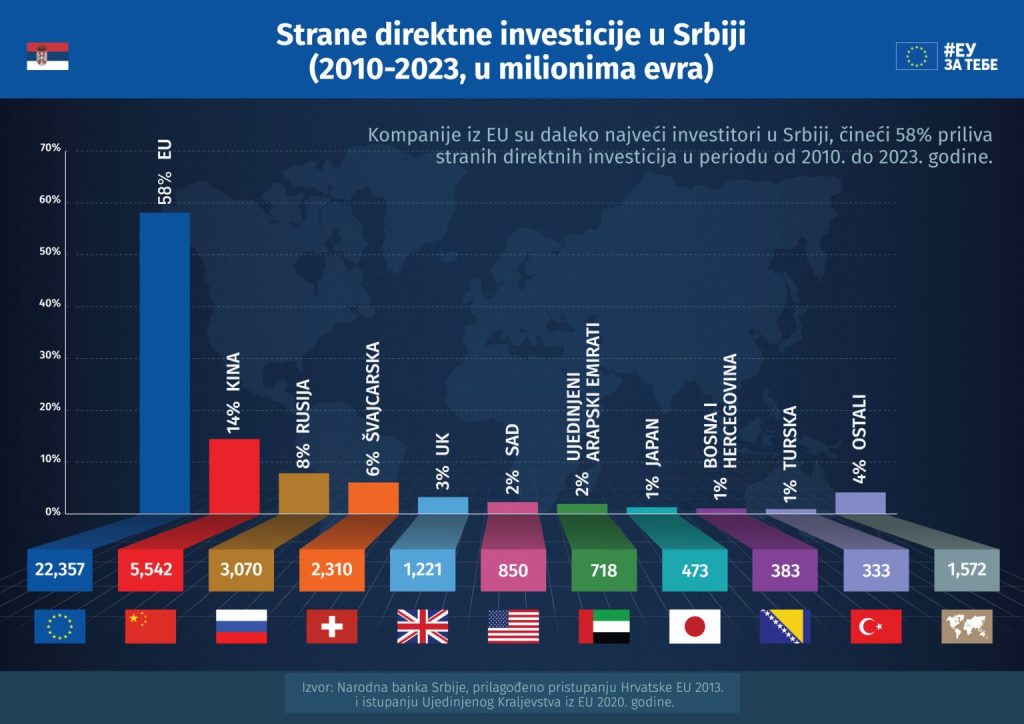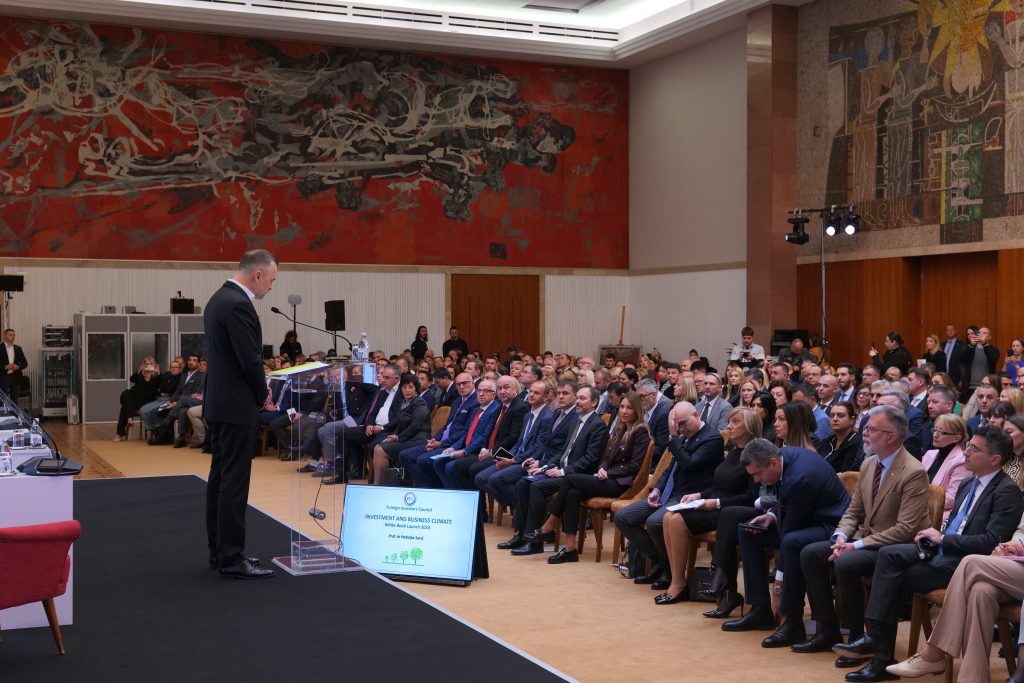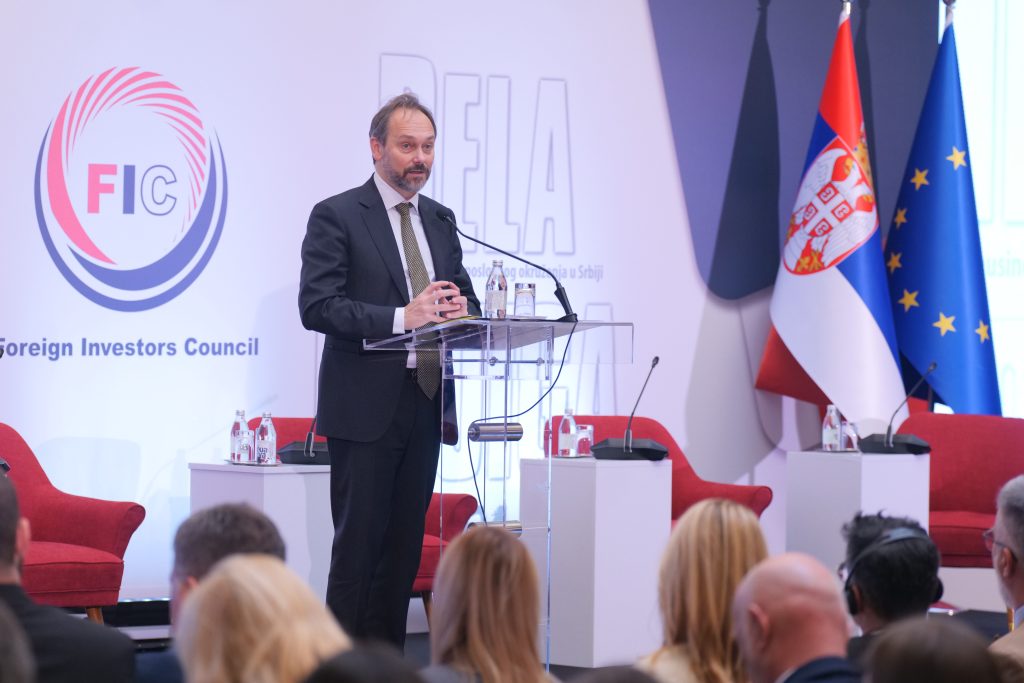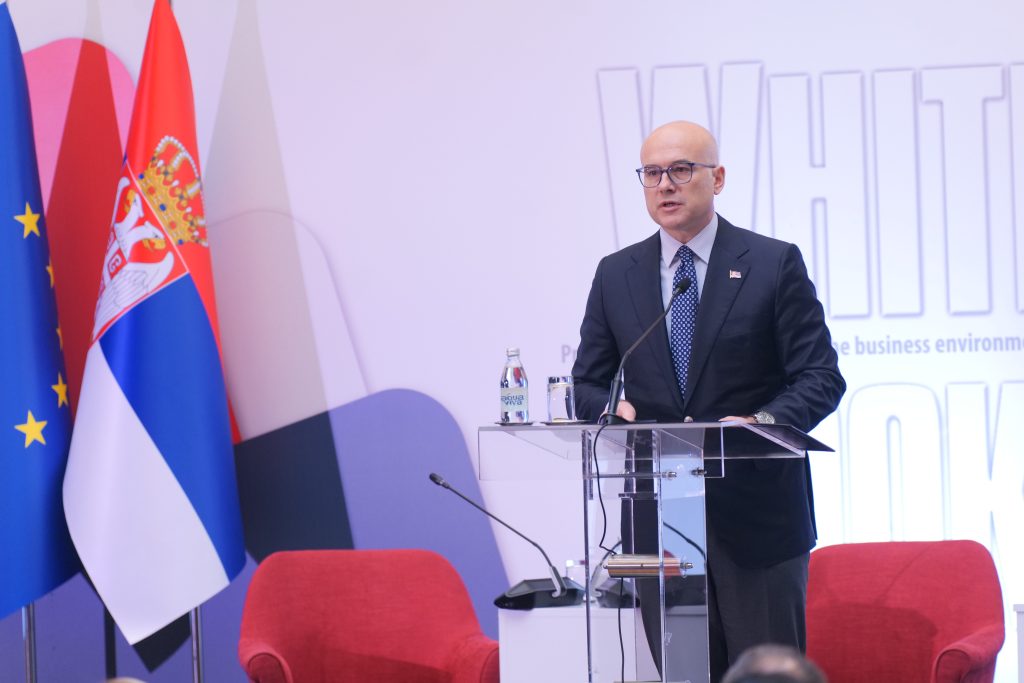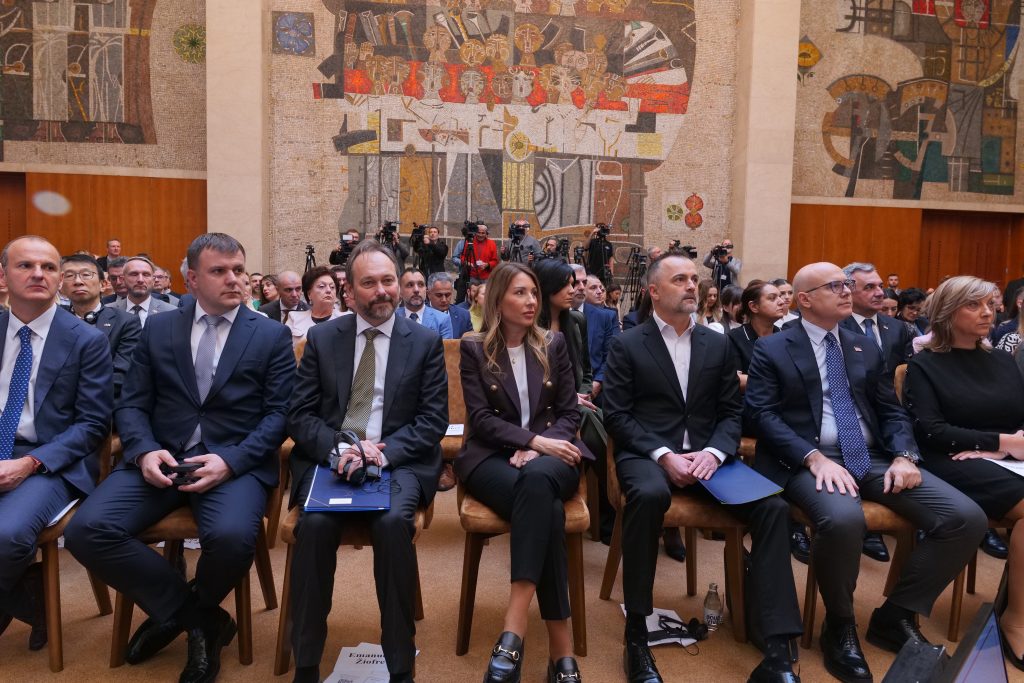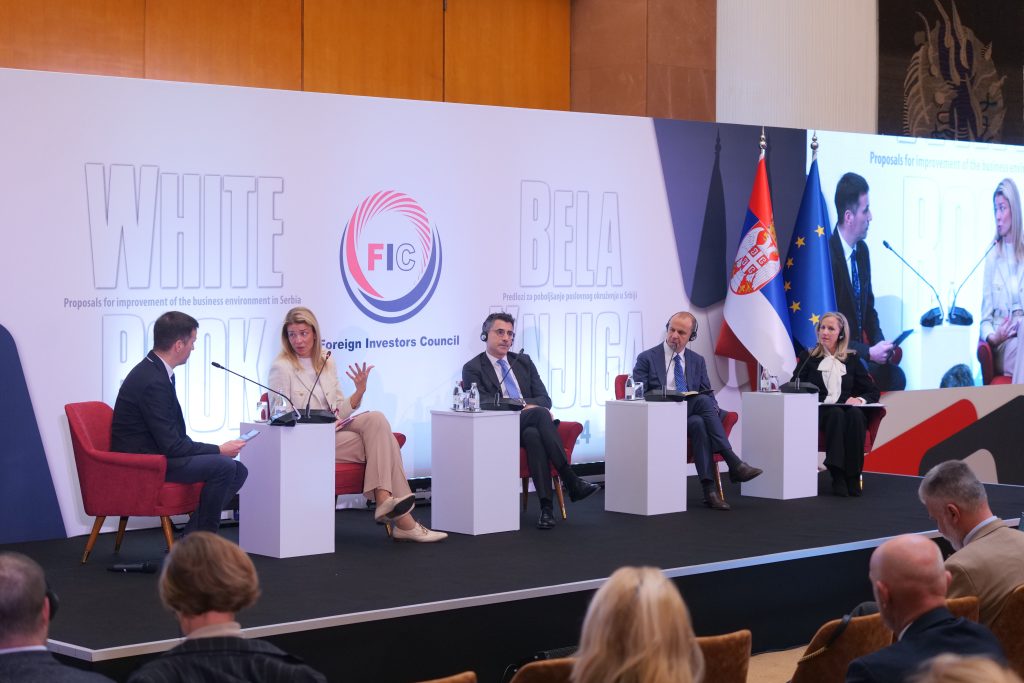The Foreign Investors Council (FIC) presented the “White Book 2024” to the highest Government officials and stakeholder community. The White Book, written by FIC members, is the major product by which, for more than two decades, FIC gives recommendations to support economic growth and better living standards of Serbian citizens. The event was opened with an introductory address by FIC President and CEO of Yettel, Mr. Mike Michelle, followed by insight into the “White Book” and FIC Index 2024 by the new Editor-in-Chief, Professor Nebojša Savić, PhD, as well as addresses by Head of EU Delegation in Serbia Mr. Emanuele Giaufret and President of the Government of the Republic of Serbia, Mr. Miloš Vučević.
In his introductory speech, FIC President and Yettel CEO Mike Michel noted that despite the geopolitical crisis, especially in Europe, which has disrupted supply chains and affected the investment ecosystem, Serbia is a great place to invest, adding that the largest share of FDI comes from the EU though this share has been decreasing. “EU membership remains a priority, especially since the EU remains Serbia’s most important trading partner. That is why it is crucial to embrace the Growth Plan for the Western Balkans proposed by the European Commission. It aims to bring benefits to the region in advance of accession, boost economic growth, and accelerate much-needed socio-economic convergence and reforms,” – concluded Michel.
Speaking on enlargement, the Head of the EU Delegation to Serbia, H.E. Emanuele Giaufret, said that it is no longer just a policy goal—it is a geopolitical imperative. „It is a top priority for the EU, with urgency to expand to the Western Balkans and other aspiring countries. Serbia must seize this pivotal moment and respond to the EU’s growing focus on enlargement. The time is now, with clear steps ahead. This should be at the centre of all of our work in Serbia; the Government, EU Delegation, civil society, businesses, and the entire country. To help accelerate the process, the Growth Plan for the Western Balkans offers an unprecedented opportunity for Serbia to boost its economy, bridge the socio-economic gap with the EU, and accelerate EU accession“, – emphasised H.E. Ambassador Giaufret.
Prime Minister Vučević stated that the “White Book” is important for the Government of Serbia, because it presents an analysis of what has been done in the previous year and provides predictions and guidelines for further work. He emphasized that the EU Growth Plan is very important.
“We have heard a lot of encouraging messages from Brussels these days, above all, regarding further European integration and EU expansion. It is up to us to work together, and Serbia will especially insist that the passing time of each candidate country is clearly measured,” Vučević pointed out.
Having in mind all the current circumstances, the general FIC recommendations contained in the White Book 2024 refer to the biggest challenges for investments. In this sense, the intensification of negotiations with the EU on Serbia’s membership status remains a key priority in order to harmonize domestic regulations with European standards to reduce geopolitical risk for investments and foreign trade.
Traditionally, this year’s White Book includes analysis with key recommendations in areas that FIC members consider priorities: taxes, labor regulations, digitalization and e-commerce, real estate and construction, combating illicit trade and inspections, environmental protection and foreign exchange operations, the pharmaceutical industry, and tourism and hospitality. The White Book Index (“FIC Index”) is a unique methodology developed by the Foreign Investors Council to measure progress in implementing the recommendations outlined in the White Book. Each area/topic is rated on a scale where 1 is the lowest score and 3 is the highest. According to this index, covering the period from November 2023 to October 2024, the overall average score for Serbia’s business climate this year stands at 1.30. Significant progress was recorded in 7% of areas, certain progress in 16% (a total of 23%), while 73% of areas showed no progress compared to the same period last year. This year’s areas with the best performance include energy, digitalization, protection of users of financial services, and public procurement. Conversely, 22 topics (areas) received a score of 1 (no progress). Among the areas without progress, food, and agriculture, taxes related to parafiscal charges, labor relations (except for the unified residence and work permit process for foreigners), tourism and hospitality, as well as insurance, leasing, and intellectual property, stand out.
In an active panel discussion on how to improve the business and investment environment in Serbia, with a special focus on transport and connectivity as one of the most urgent topics not only for foreign investors but also for the entire business community in the country, opinions were exchanged between Andrea Hochhuber, Head of European Integration, Economic and Trade Section in the EU Delegation to Serbia, Marjana Davidović, Nestle General Manager for the Southern part of the Adriatic region, Nicola Pontara, World Bank, Country Manager, and Matteo Colangeli, EBRD Regional Director for Western Balkans.

